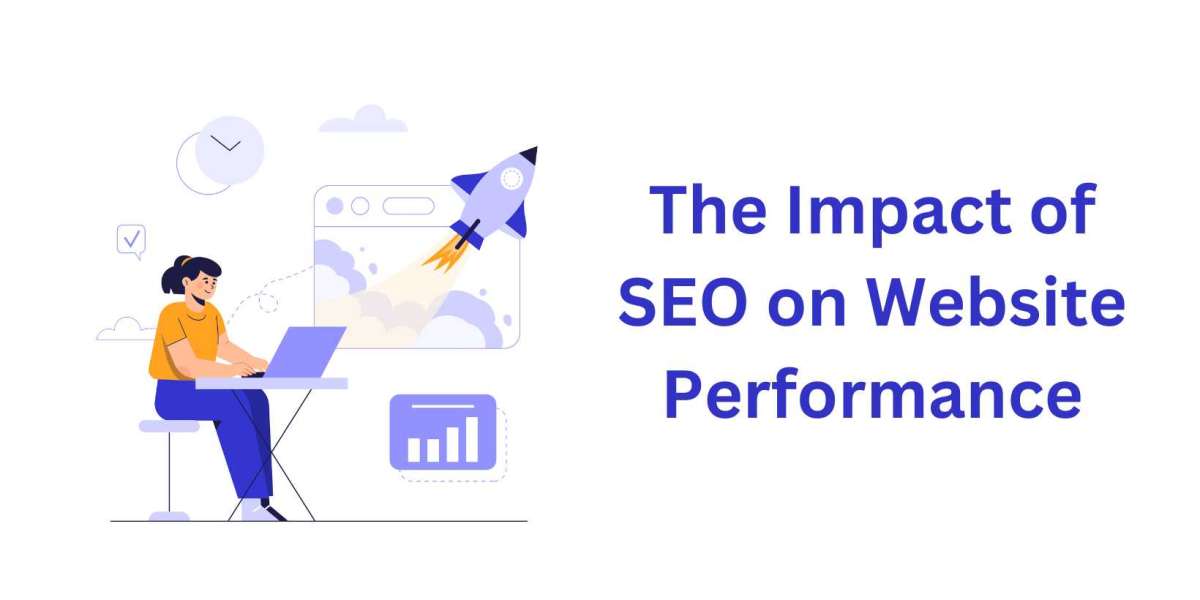Search Engine Optimization (SEO) is a critical element for improving a website's performance. As businesses compete for visibility online, understanding how SEO affects website performance can help you make informed decisions to enhance your site's effectiveness. In this article, we'll explore the various ways SEO impacts website performance, including user experience, search engine rankings, and overall business success.
Introduction
SEO is much more than just a buzzword. It encompasses a variety of techniques and strategies aimed at improving your website's visibility in search engine results. Effective SEO can significantly influence your website's performance, from increasing traffic and improving user engagement to enhancing your site's credibility and conversion rates. This article will delve into how SEO impacts these areas and why it's essential for optimizing your website's performance.
How SEO Enhances Search Engine Rankings
Understanding Search Engine Rankings
Search engine rankings refer to the position of your website in search engine results pages (SERPs) for specific queries. Higher rankings generally mean more visibility, which can lead to increased traffic and higher engagement.
The Role of SEO in Improving Rankings
SEO helps improve search engine rankings by optimizing various elements of your website. Key SEO practices that impact rankings include:
- Keyword Optimization: Incorporating relevant keywords into your content, title tags, and meta descriptions helps search engines understand what your site is about and match it with users' search queries.
- Content Quality: High-quality, valuable content attracts visitors and encourages them to spend more time on your site, which can positively influence your rankings.
- Backlinks: Obtaining high-quality backlinks from reputable sites signals to search engines that your site is credible and authoritative, which can boost your rankings.
The Importance of On-Page and Off-Page SEO
- On-Page SEO: This includes optimizing elements on your website, such as titles, meta descriptions, headers, and content. Proper on-page optimization ensures that search engines can easily crawl and index your site, improving your chances of ranking higher.
- Off-Page SEO: This involves activities outside your website, such as acquiring backlinks and engaging on social media. Effective off-page SEO builds your site's authority and reputation, further enhancing your rankings.
The Impact of SEO on Website Traffic
Increasing Organic Traffic
One of the primary benefits of SEO is its ability to drive organic traffic to your website. Organic traffic refers to visitors who find your site through search engines rather than paid ads.
How SEO Drives More Traffic
- Targeted Keywords: By optimizing for relevant keywords, your website becomes more visible to users searching for specific terms related to your products or services.
- Improved Visibility: Higher search engine rankings result in greater visibility, leading to more clicks and visits to your site.
- Enhanced User Experience: SEO practices such as improving site speed and mobile-friendliness contribute to a better user experience, encouraging more visitors to stay on your site longer.
Measuring Traffic Growth
Use tools like Google Analytics to track changes in traffic levels and understand how SEO efforts impact your site's performance. Key metrics to monitor include organic search traffic, bounce rates, and session duration.
Enhancing User Experience (UX) Through SEO
The Relationship Between SEO and UX
User experience (UX) plays a crucial role in SEO. Search engines prioritize sites that offer a positive UX, as they aim to provide users with the best possible results.
Key UX Factors Impacted by SEO
- Site Speed: Fast-loading pages improve user satisfaction and reduce bounce rates. SEO practices such as image optimization and caching contribute to faster load times.
- Mobile Optimization: A responsive design ensures that your site functions well on all devices, which is essential as more users access websites via mobile devices.
- Navigation and Structure: SEO involves creating a clear and logical site structure, making it easier for users to find information and navigate your site efficiently.
Improving UX Through SEO
- Optimize Load Times: Minimize large files, leverage browser caching, and use content delivery networks (CDNs) to enhance site speed.
- Ensure Mobile-Friendliness: Use responsive design techniques to ensure your site adapts to different screen sizes and devices.
- Enhance Navigation: Create a user-friendly menu structure, use internal linking effectively, and provide clear calls to action (CTAs) to guide users through your site.
Boosting Conversion Rates with SEO
The Role of SEO in Conversions
Conversions refer to the actions users take on your website, such as making a purchase, signing up for a newsletter, or filling out a contact form. SEO can influence conversion rates by improving your site's visibility and usability.
How SEO Affects Conversions
- Targeted Traffic: By attracting visitors who are specifically searching for your products or services, SEO helps ensure that the traffic you receive is more likely to convert.
- High-Quality Content: Providing valuable and relevant content can persuade visitors to take action, whether it's making a purchase or engaging with your brand.
- Optimized Landing Pages: SEO practices help create well-optimized landing pages that are tailored to meet the needs of your target audience and encourage conversions.
Strategies to Enhance Conversions
- Optimize Landing Pages: Ensure that landing pages are relevant to the keywords you're targeting, include clear CTAs, and provide a seamless user experience.
- Use Clear CTAs: Make sure your CTAs are prominent and clearly communicate the action you want users to take.
- A/B Testing: Experiment with different elements on your site, such as headlines, images, and CTAs, to determine which versions lead to higher conversion rates.
Building Credibility and Trust Through SEO
The Importance of Credibility
A credible website builds trust with users and search engines. Trustworthy sites are more likely to attract and retain visitors, leading to improved performance and higher rankings.
How SEO Contributes to Credibility
- High-Quality Backlinks: Earning backlinks from reputable and authoritative sites signals to search engines that your site is trustworthy and relevant.
- Consistent NAP Information: For local businesses, having consistent Name, Address, and Phone number (NAP) information across directories and listings helps build credibility and trust.
- Secure Website (HTTPS): Using HTTPS ensures that your site is secure, which can improve user trust and is a ranking factor for search engines.
Building Credibility Through SEO
- Acquire Quality Backlinks: Focus on obtaining backlinks from high-quality, relevant sources in your industry.
- Maintain Consistent Information: Ensure that your business information is consistent across all online platforms and directories.
- Secure Your Site: Implement HTTPS to protect user data and enhance the security of your site.
The Long-Term Benefits of SEO
Sustainable Growth
SEO offers long-term benefits that extend beyond immediate results. By investing in SEO, you can achieve sustainable growth and maintain a strong online presence.
Key Long-Term Benefits
- Continued Traffic Growth: Well-optimized websites continue to attract organic traffic over time, leading to ongoing visibility and engagement.
- Cost-Effective Marketing: Unlike paid advertising, which requires ongoing investment, SEO provides a cost-effective way to maintain and improve your site's performance.
- Ongoing Improvement: SEO is an ongoing process that involves continually optimizing and updating your site to stay competitive and meet user needs.
Planning for Long-Term SEO Success
- Regular Updates: Keep your content fresh and relevant by regularly updating it with new information and insights.
- Adapt to Changes: Stay informed about changes in search engine algorithms and industry trends to adjust your SEO strategies accordingly.
- Monitor Performance: Continuously track your site's performance and make data-driven decisions to improve your SEO efforts.
The Role of Offshore SEO in Global Strategy
What is Offshore SEO?
Offshore SEO involves outsourcing SEO tasks to agencies or professionals located in other countries. This approach can offer cost advantages and access to specialized expertise.
Benefits of Offshore SEO
- Cost Savings: Offshore SEO services often come at a lower cost compared to domestic options, making it a cost-effective choice for businesses with budget constraints.
- Access to Expertise: Offshore agencies may offer specialized skills and experience that can enhance your SEO efforts and provide new perspectives.
- Scalability: Working with offshore teams can provide the flexibility to scale your SEO efforts as needed, without the constraints of a local workforce.
Considerations for Offshore SEO
- Quality Control: Ensure that the offshore agency or professional maintains high standards and aligns with your SEO goals.
- Communication: Effective communication is crucial when working with offshore teams. Establish clear expectations and maintain regular contact.
- Compliance and Ethics: Verify that the offshore provider adheres to ethical SEO practices and complies with search engine guidelines.
Conclusion
SEO significantly impacts various aspects of website performance, from search engine rankings and traffic to user experience and conversion rates. By understanding and leveraging SEO techniques, you can enhance your website's effectiveness and achieve long-term success. As businesses consider expanding their reach, offshore SEO can also play a role in your strategy, offering additional opportunities for growth and cost savings. Implementing a comprehensive SEO approach will help you maximize your website's potential and stay competitive in the digital landscape.








